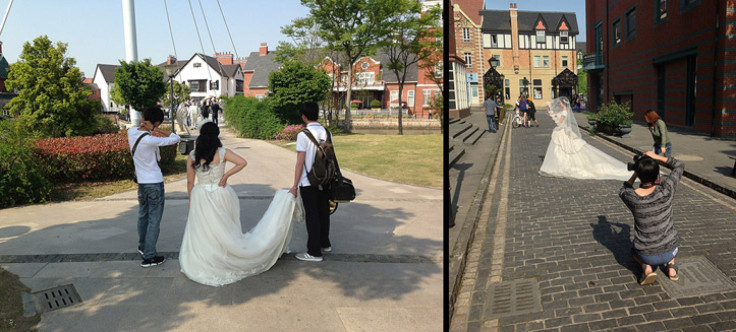Chinese Official Fired For Flaunting Daughter's Opulent Wedding Celebration

The Communist Party of China has been fighting the corruption of officials. The initiative put into place by the new leader, President Xi Jinping, has the central government cracking down on lavish banquets and exorbitant spending by local officials flaunting their wealth.
But the party chief of Pingdingbao Township must have not gotten the message about discretion because he still threw his daughter an opulent wedding banquet.
Yue Shuwang, who led the party in a particularly impoverished town in the poverty-stricken Guyuan County in northern China’s Hebei Province, was fired from his position after an investigation into his daughter’s July 17 wedding banquet, on which he reportedly spent 200,000 yuan, roughly $32,000. Perhaps even more concerning to the government was that guests gave up to 1 million yuan in monetary “gitfts.” State news source Xinhua news agency is reporting that Yue has been ordered to return all cash and other items that were initially accepted.
The party made the story of the fallen local politician public, publishing the story in a circular earlier this week, hoping it would serve as a warning for others who persist in flaunting their usually ill-gotten wealth. The shaming of Yue is in line with the party’s efforts to eliminate extravagance among officials at all levels in hopes of solidifying the “mass line” campaign. The effort, rolled out in June, exhorts officials to put serving the people first, not the perks that have become associated with political careers. The article also added that this should be the time for CPC members and other officials engaged in illegal behavior to rectify their behavior and reaffirm their main purpose of service to the public.
Chinese state-run news outlets have not been holding back in publishing corruption stories lately. The decision to expose such stories instead of burying them is presumably a gesture in support of the central leadership’s nationwide crackdown on corruption, and a warning to miscreants. A similar pattern is seen in how China’s government censors handled the indictment of fallen political leader Bo Xilai earlier this week; blocks on microblogging platform Weibo of Bo’s name were suddenly lifted after an official announcement was made.
© Copyright IBTimes 2024. All rights reserved.












